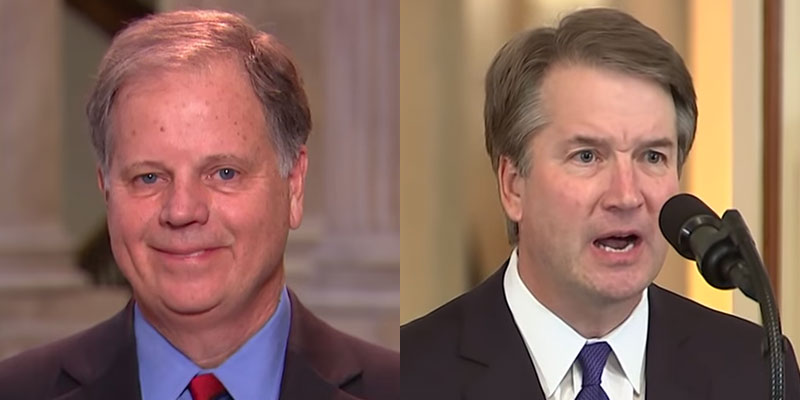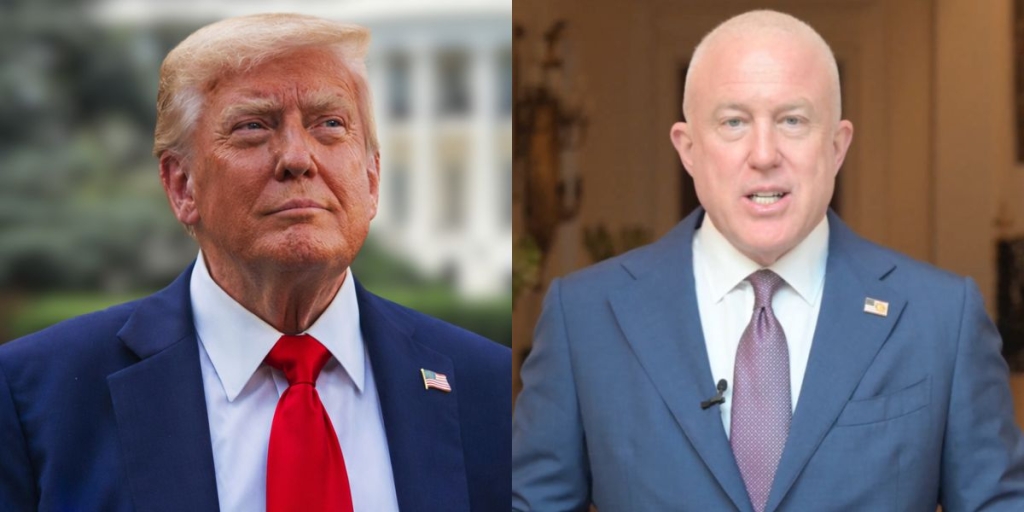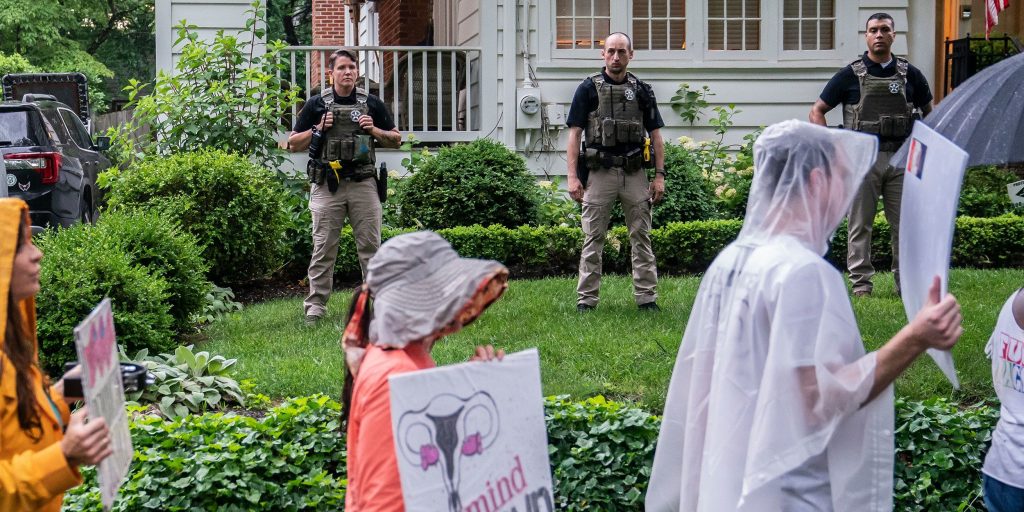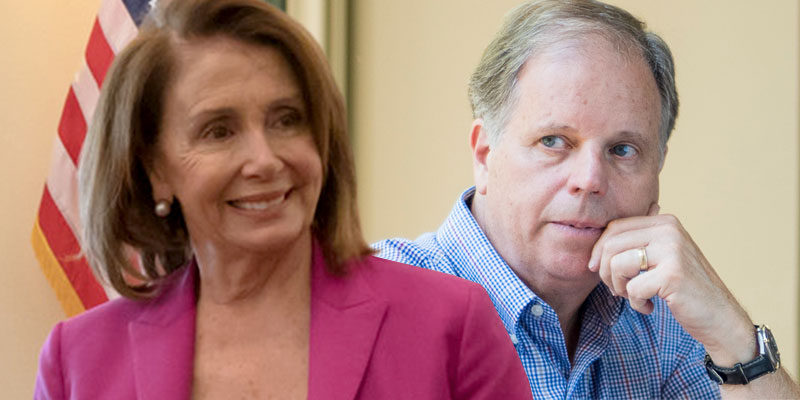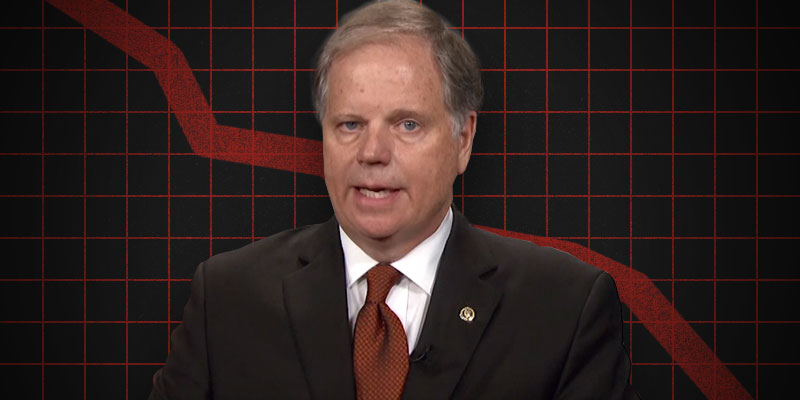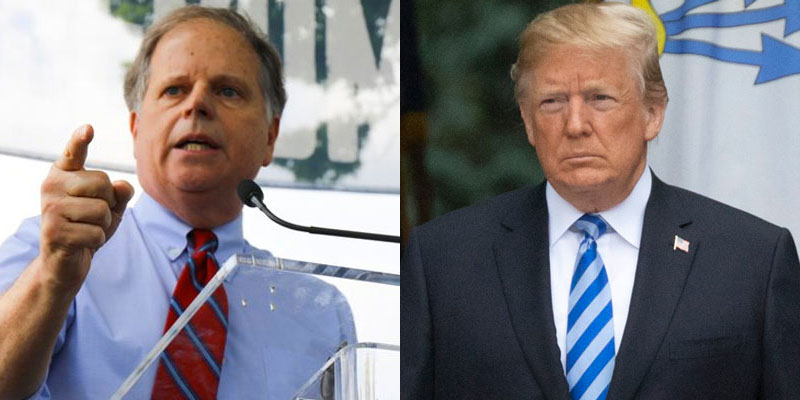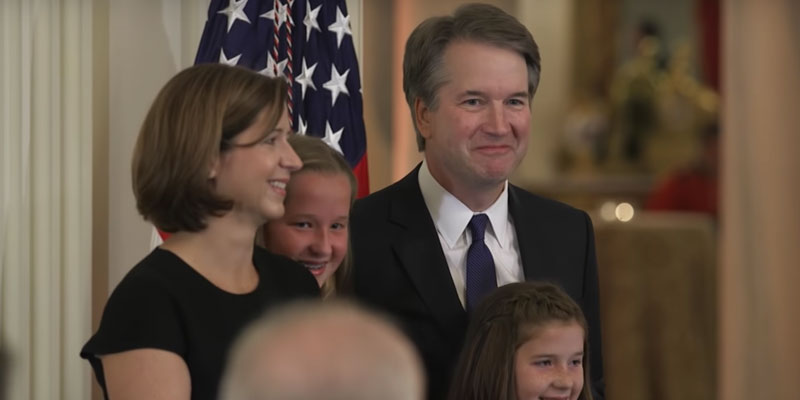On Sunday, Senator Doug Jones (D-Mountain Brook) did an interview with CNN in which he discussed an allegation of sexual assault by then high-school student Brett Kavanaugh, who is now President Trump’s nominee to the Supreme Court.
In the interview, Jones said that the allegation needed to be “tested in the light of day,” meaning that the accuser would have to come forward for more to be known and vetted.
Mere hours later, the Washington Post published an article in which the accuser, Christine Blasey Ford, did exactly that.
Now with the allegation out in the open, Jones could have the excuse he was looking for to vote against Kavanaugh’s confirmation. Alabama’s junior senator still has not met with the nominee but plans to ask about the allegation, which Kavanaugh flatly denied last week, if he does schedule a meeting.
“I’m sure I will, if I get a chance to meet,” Jones told CNN’s Jake Tapper. “It’s a very serious allegation.”
Jones refused calls to meet with Kavanaugh before his confirmation hearing, saying instead he would meet with him afterwards. However, with the committee vote scheduled for Thursday and a vote by the full-Senate expected to quickly follow, Jones is running out of time.
In the interview, Jones did admit that Democrats should have acted on the allegation sooner instead of waiting until the last minute, as they sat on the information since July and did not bring the accusation up in written questions, private meetings, the open confirmation hearings or the closed confirmation hearing.
“I think it should have been brought up, at least behind closed doors,” Jones outlined. “I mean, it’s a really serious allegation.”
He explained that the decision when or if to bring up the allegation is not an easy one because you have to respect “the wishes of the victim” and “be fair” to the accused.
“I think it’s a difficult spot to be in. I wish someone had talked about it early on,” Jones added. “It could’ve, maybe, been cleared up. I think at this late date, we’re going to have to wait and see if this person decides to come forward to test that in the light of day.”
Now that Ford, the accuser, has come forward, Jones sees it as a similar situation to his own campaign, which saw former Alabama Chief Justice Roy Moore defeated by decades-old allegations of sexual misconduct, including assault of a minor.
“Similar to what happen in my race, Jake, you’ve got to have that in the open and test that in the light – in the sunshine of the media and other things in order to judge the credibility,” Jones told the CNN host.
Democratic Sen. Doug Jones says he will bring up the sexual misconduct allegation against Brett Kavanaugh: “At this point, it’s an anonymous letter and you’re not going really going to be able to test it unless someone comes forward with more information” #CNNSOTU pic.twitter.com/uzF7HaSrKC
— CNN (@CNN) September 16, 2018
Ford alleges that Kavanaugh, when they were both in high school, drunkenly pinned her down on a bed and groped her over her clothing in a locked room at a house party, with another male friend watching and laughing.
“I thought he might inadvertently kill me,” Ford said of Kavanaugh. “He was trying to attack me and remove my clothing.”
“When she tried to scream, she said, he put his hand over her mouth,” the Washington Post added.
Ford is a professor at Palo Alto University and teaches in a consortium with Stanford University, training graduate students in clinical psychology. Now 51 years old and living in northern California, Ford is a registered Democrat with a history of giving to liberal political organizations.
Before sending a letter with the allegation to Sen. Diane Feinstein (D-California), Ford contacted the Washington Post through a tip line about the accusation prior to Kavanaugh being officially nominated. She also contacted her congresswoman – Democrat Rep. Anna G. Eshoo.
Ford has hired Debra Katz, a D.C. lawyer known for her work on sexual harassment cases. Per the Washington Post, “On the advice of Katz, who believed Ford would be attacked as a liar if she came forward, Ford took a polygraph test administered by a former FBI agent in early August. The results, which Katz provided to The Post, concluded that Ford was being truthful when she said a statement summarizing her allegations was accurate.”
Ford allegedly has not spoken with Kavanaugh since that night. She said she told no one at the time what had happened to her.
“Years later, after going through psychotherapy, Ford said, she came to understand the incident as a trauma with lasting impact on her life,” the Washington Post reported.
Their reporting added that “she believes that … it contributed to anxiety and post-traumatic stress disorder symptoms with which she has struggled.”
On Friday, with rumors of the allegation swirling, 65 women – who all knew Kavanaugh in high school – came forward to support his nomination and defend his character in a letter.
“For the entire time we have known Brett Kavanaugh, he has behaved honorably and treated women with respect,” they wrote.
Later in the letter, they added, “The signers of this letter hold a broad range of political views. Many of us are not lawyers, but we know Brett Kavanaugh as a person. And he has always been a good person.”
Through the White House, Kavanaugh on Sunday again denied the allegation, this time addressing it specifically.
“I categorically and unequivocally deny this allegation. I did not do this back in high school or at any time,” Kavanaugh said.
Read the full report for more details about Ford’s allegation, her timeline and how psychotherapy fits into the story here.
Sean Ross is a staff writer for Yellowhammer News. You can follow him on Twitter @sean_yhn




